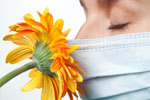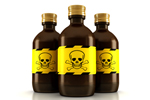There are literally thousands of potions and preparations designed to aid us in the pursuit of beauty and acceptance. Most of them exist to make us feel better and, while they don't deliver total and instant youth, they're pretty harmless. But a handful of these cosmetics are dangerous and can do permanent damage - take skin whiteners, for instance.
Q: Info on melanin reduction pills
How can one decrease the amount of melanin in the body? I don't want to look like Michael Jackson did, but would like to be a little bit lighter. I hear there is medication that one can take - pills. Please advise.
Expert: Firstly, I won't recommend trying anything like this without consulting a dermatologist first.
I'm not aware of any such tablets in SA registered for this use, but some products are available on the internet. Pallid Complexion Tablets are formulated using naturally derived active ingredients, known to inhibit tyrosinase production within the skin. By reducing tyrosinase activity, melanocyte activity is also reduced. Melanocytes are responsible for creating melanin, which gives skin its dark color.
Other remedies include taking L-glutathione and vitamin C in high doses. Supposedly the Vit C dose is taken at double the dose of glutatione three times a day before meals.
Q: Skin Bleach
I have some discolouration on my armpits and on my inner thighs. The discolouration under my arms could be caused by shaving,but I'm not too sure. What skin bleach would you recommend for this and for how long?
Expert: I would not recommend using a bleach, specially not in the armpit region. Rather try using a benzoyl peroxide 10 lotion in the affected regions first together with a potent antibacterial soap. Should this not be effective speak a cosmetic consultant and see if they have any advice.
Regarding bleaches: skin bleaching destroys the black pigment found in the epidermis (top layer of the skin). Most skin bleaching products contain the active ingredient - hydroquinone, while others contain chlorine or various acids. Hydroquinone lightens the colour of the skin areas to which it is applied by killing off the melanin-making cells -the melanolyte. It is also the active ingredient in 'fade-off' creams for freckles, age spots, etc.
These products can be obtained over the counter in weak strengths or by prescription for your plastic surgeon or dermatologist. Formulations of 4% used to be thought to be the best as irritation would erupt in higher strengths. You can ask your pharmacist to mix you a cream or recommend one that they stock.
Q: Skin whitening
Is skin whitening safe? How much does it cost? I am 27 and not using any products on my skin. My skin is unevenly toned and I am battling to find a suitable product.
Expert: De-pigmentation creams or ‘whitening’ creams contain either in combination or separately the following ingredients: kojic acid, glycolic acid, gluconolactone, and citric acid. These ingredients are mostly derived from fruits, leaves and roots from various plants.
As regarding the safety of ‘skin whitening’ I would never recommend starting this regime without consulting a dermatologist, plastic surgeon or aesthetic practitioner first, who will give you the best advice especially when considering the use of hydroquinone alone or in combination with the above ingredients. Hydroquinone is banned in some countries due to a possible link to cancer.
Renova (prescription only), Retin A and retinol esters are also used for their de-pigmentation properties. Over the counter forms are found in Skin Nutrition products (most beauty salons carry this range) and with the NeoStrata range (medical practitioners only).
Q: Hydroquinone
I bought a skin whitening product called Golden Pearl (imported from Pakistan) which contains hydroquinone. What is it? Is it safe to use on the face? What are the side effects? Please advise me. Thanks
Expert: According to the literature: hydroquinone decreases the formation of melanin in the skin. Melanin is the pigment in skin that gives it a brown color. Hydroquinone topical is used to lighten areas of darkened skin such as freckles, age spots, chloasma, and melasma.
Hydroquinone is not suitable for use by pregnant women. It must not be used on skin that is sunburned, windburned, dry, chapped, or irritated, or on an open wound as it could make these conditions worse. Do not use other medicated skin products unless your doctor has told you to. Hydroquinone can make your skin more sensitive to sunlight and sunburn may result. Using hydroquinone together with benzoyl peroxide, hydrogen peroxide, or other peroxide products may cause a temporary staining of your skin. This staining can usually be removed with soap and water.
Hydroquinone can have the following side effects: hives; difficulty breathing; swelling of your face, lips, tongue, or throat. Less serious side effects may include mild burning, stinging, itching, redness, or irritation of treated skin. This is not a complete list of side effects and others may occur.
Read more:
Send your skin health questions to the Anti-ageing Expert
Visit the Skin centre for more information
(Joanne Hart, Health24, November 2011)




 Publications
Publications
 Partners
Partners

















